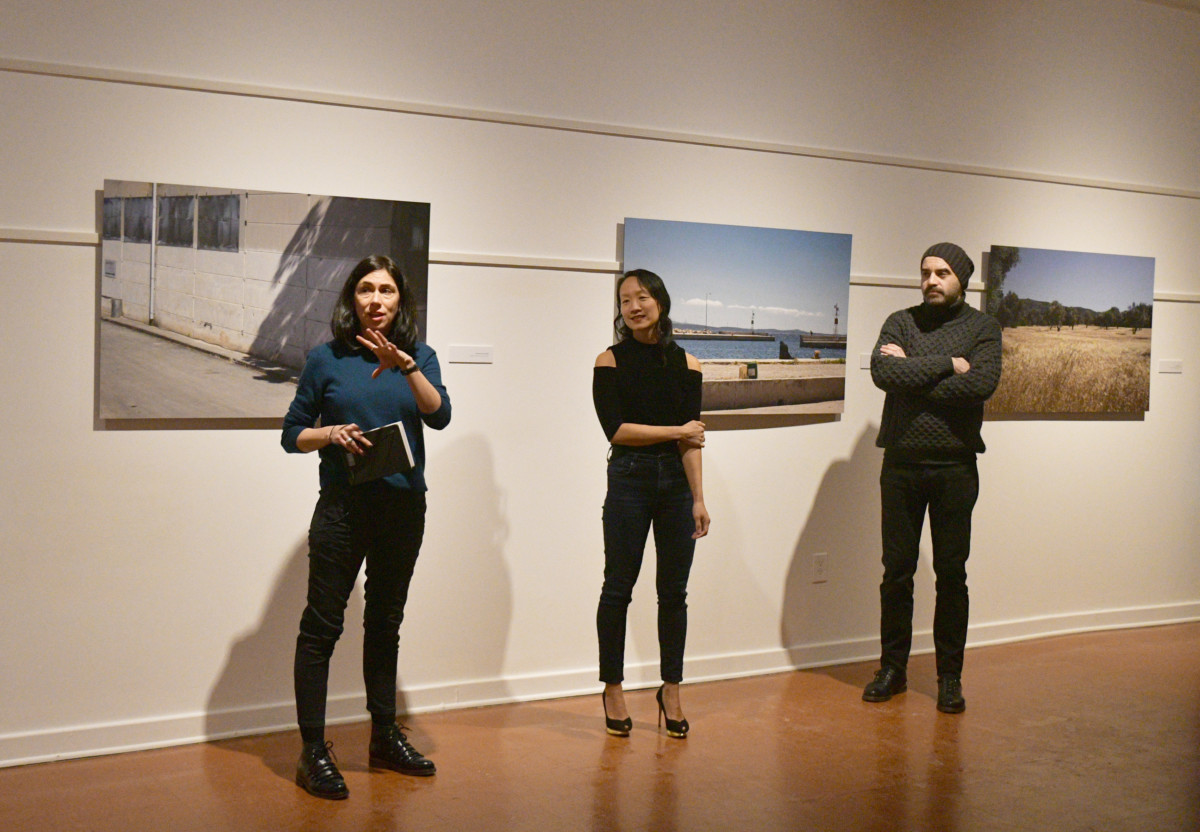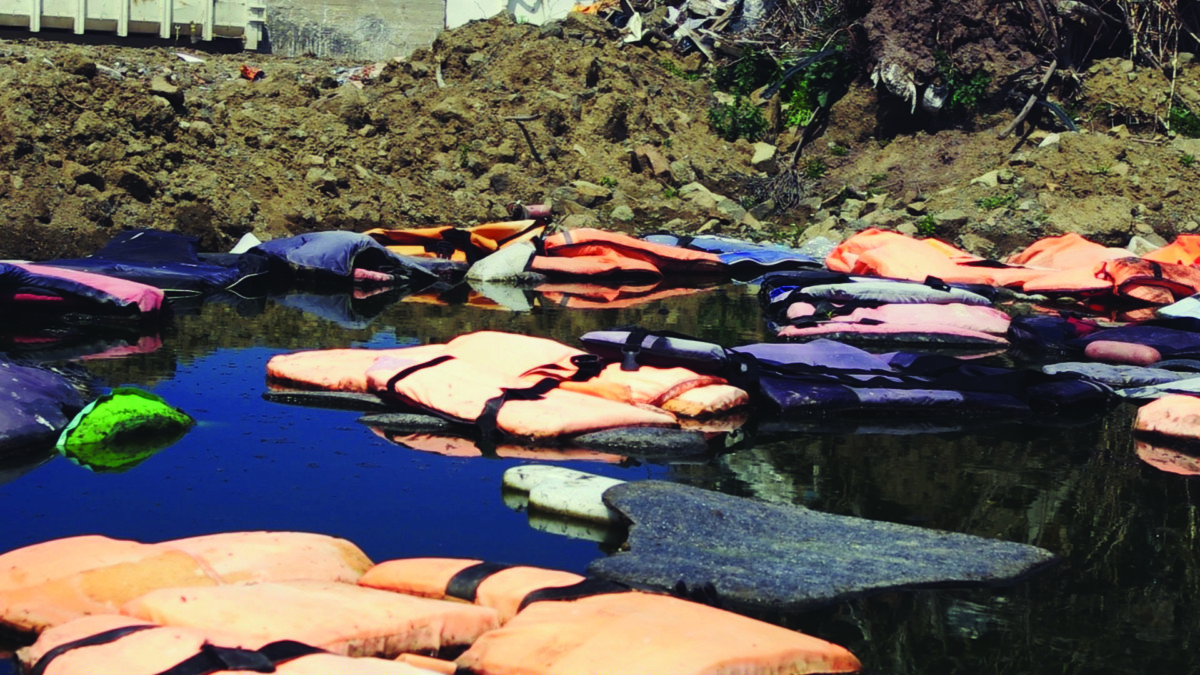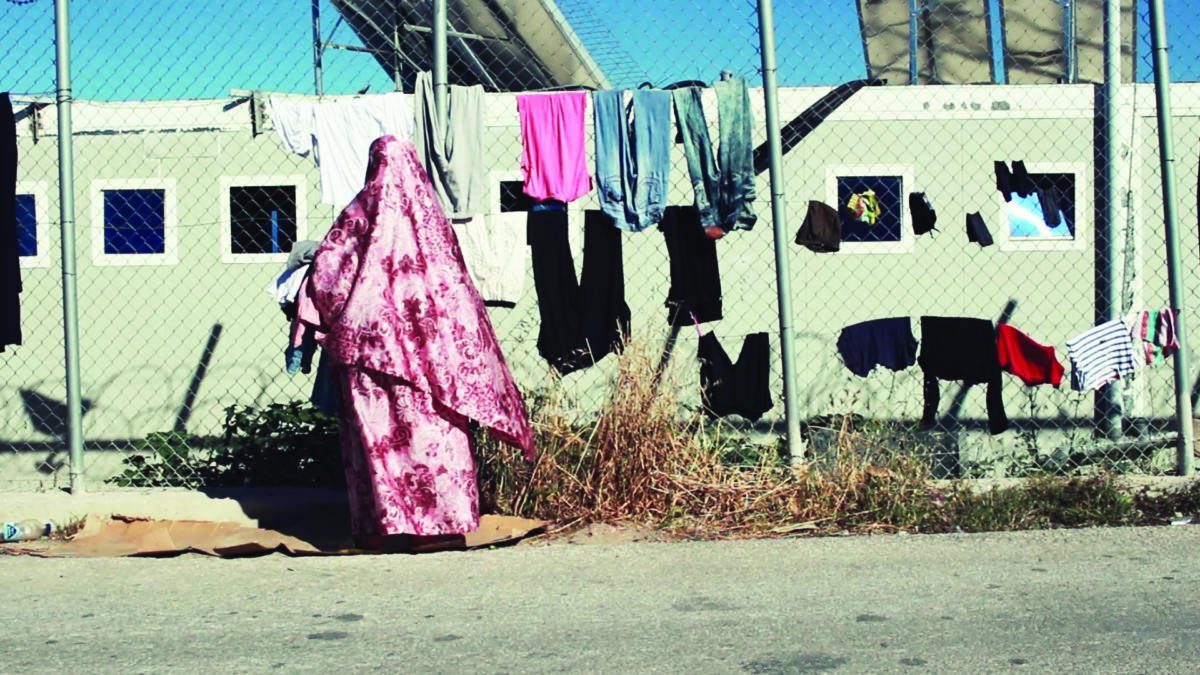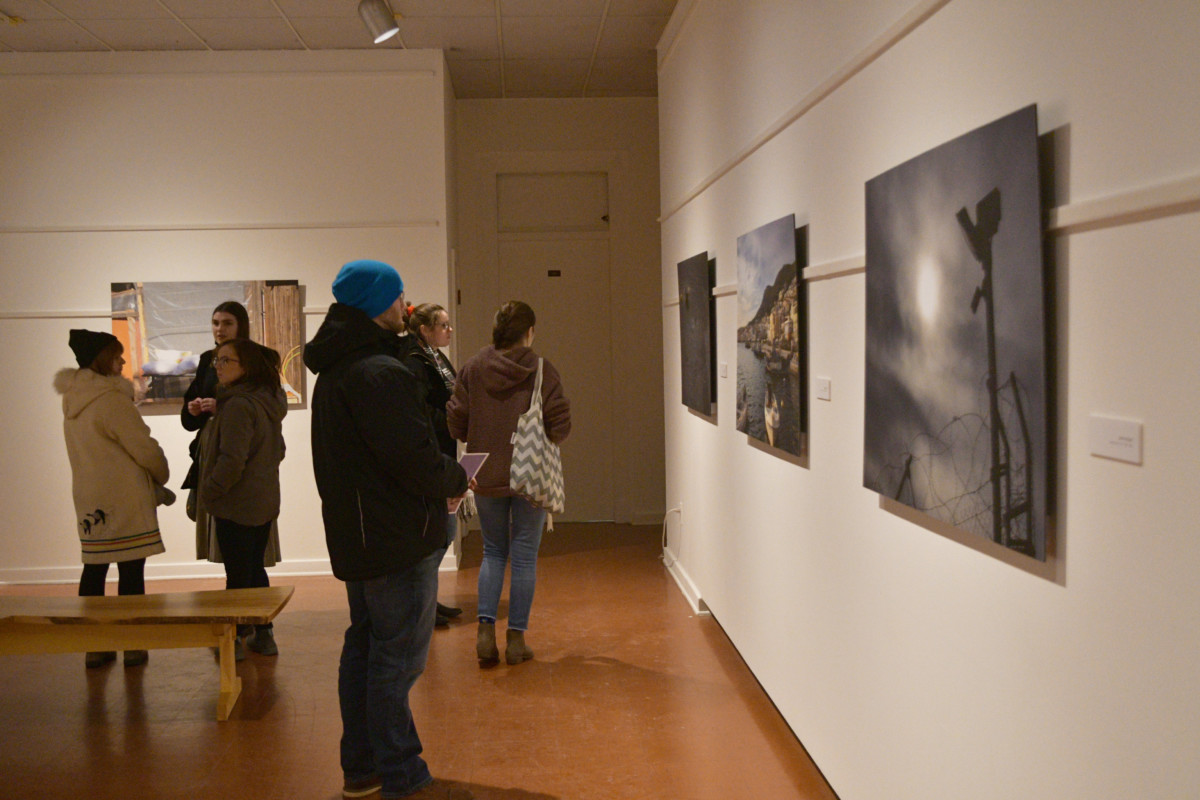

A new art exhibit based off a documentary is showing the most beautiful places on Earth can have a lot of pain underneath them.
The documentary called Trace was made by Raluca Bejan, a former assistant professor of social work at St. Thomas University, and Ioan Cocan, a graduate from the Frank Mohr Institute for Graduate Studies and Research in the Arts and Emerging Media in the Netherlands.
Now, a collection of stills from the film at the University of New Brunswick’s Art Centre is “scrutinizing the spaces in which people seek refuge.”

Bejan said the images are meant to trigger the emotions of the viewer.
“We wanted to get away from the individualizing gaze on the matter and bring the focus onto the structure, because we think this is a structural problem that’s created by inequality patterns and colonial organizations.”
The images
The photo exhibit is curated by Natasha Lan, a colleague Bejan has collaborated with previously during their time at the University of Toronto.
The collection features shocking stills from the movie documenting the shores where refugees would arrive, the camps where they were forced to sleep and the mountains of life preservers that have accumulated from those who died on the boats that didn’t make it.


Lan said that the exhibit amplifies the painful reality that the film portrays.
“It’s not fabricated … these are sites where trauma occurred and where thousands of people were just pouring in. These are real lives that we are dealing with.”
The exhibit also extends to Fredericton’s Beaverbrook Art Gallery, where a handful of extra images from the film can viewed in the Bruno Bobak Artist-in-Residence studio.
The film
The documentary itself focuses on the problems refugees face when fleeing from Turkey to Greece, where their only mode of escape is by small boats that are not equipped for the journey they must take across the Mediterranean Sea.
Cocan said the film exposes the reality of what is actually happening and the quasi-normality of places like Greece.
“You go to this island, you see these picturesque images and then during the night, crossings happen and people drown,” said Cocan.
Those who survive the journey must then overcome the lack of support offered by the Greek government, discrimination and death threats from locals and political policies that make the struggle for a fresh start even more difficult.
The main subject of the film embodies this struggle.


Anwar Nillufary, a Kurdish refuge, sleeps in a tent outside the office of the United Nations High Commissioner for Refugees in Athens. He said he has faced death threats, discrimination and can’t leave the country. He is protesting their refusal to help people in his situation find news homes in places like Canada or the United States.
Nillufary even staged a 64-day hunger strike from March 21 to May 23, 2017.
Bejan wants the film to familiarize and engage people with the issue.
“If we can also create some sort of advocacy for Anwar [Nillufary], that’s obviously something that we will be very happy with. But mainly [we want] to politicize the audience because oftentimes people think that if something happens really far away from them, it’s just irrelevant.”
Bajan said the film can help inform the audience of his struggle and help others going through similar situations.
“Maybe they don’t have the same journey as Anwar, maybe they’ve come from Jordan or Lebanon, but they still have similar traumatic injuries and I think it’s important, even for the local community, to become aware of some of these people and how much how much they went through.”
Taking Trace further
The exhibit can be viewed in Fredericton until Feb. 14. A panel discussion, moderated by Bejan, will also take place at UNB’s Memorial Hall on Feb. 5.


The panel will broadly discuss the theme of the refugee crisis but also the representation of the refugees. It will feature several guest speakers including poet Antoine Cassar, author of the book Passport, Olga Lafazani, the leader of an activist group who opened the doors to Athen’s City Plaza Hotel when Greece’s borders closed, and a potential video call from Anwar Nillufary, who will recount some of his stories from his activism.
There will be a full screening of the documentary in Fredericton on Feb. 26 at the Gallery on Queen. Bejan and Cocan will also take the film overseas for a screening at Cambridge University in the United Kingdom on Feb. 12 and plans are in the works to replicate the photo exhibit in their home country of Romania sometime next spring.
